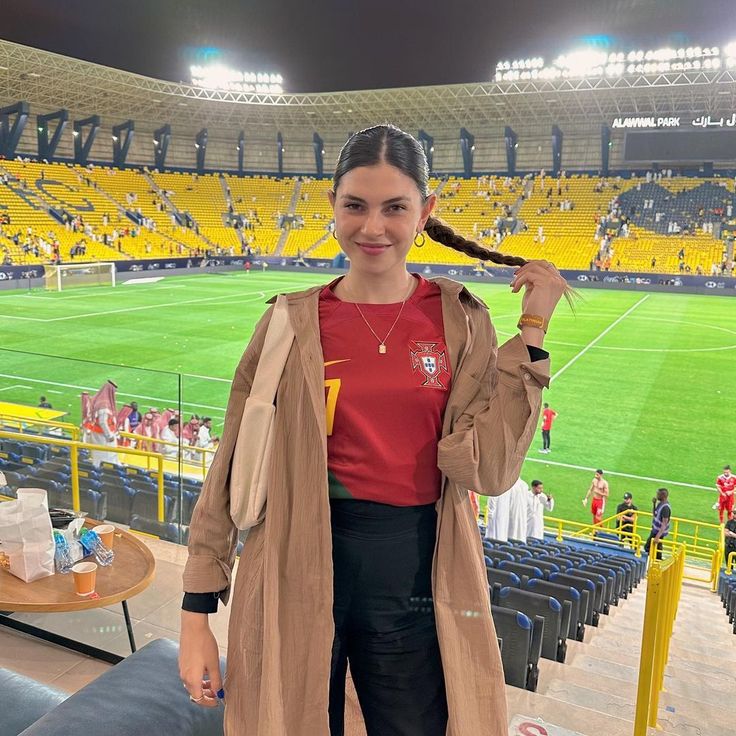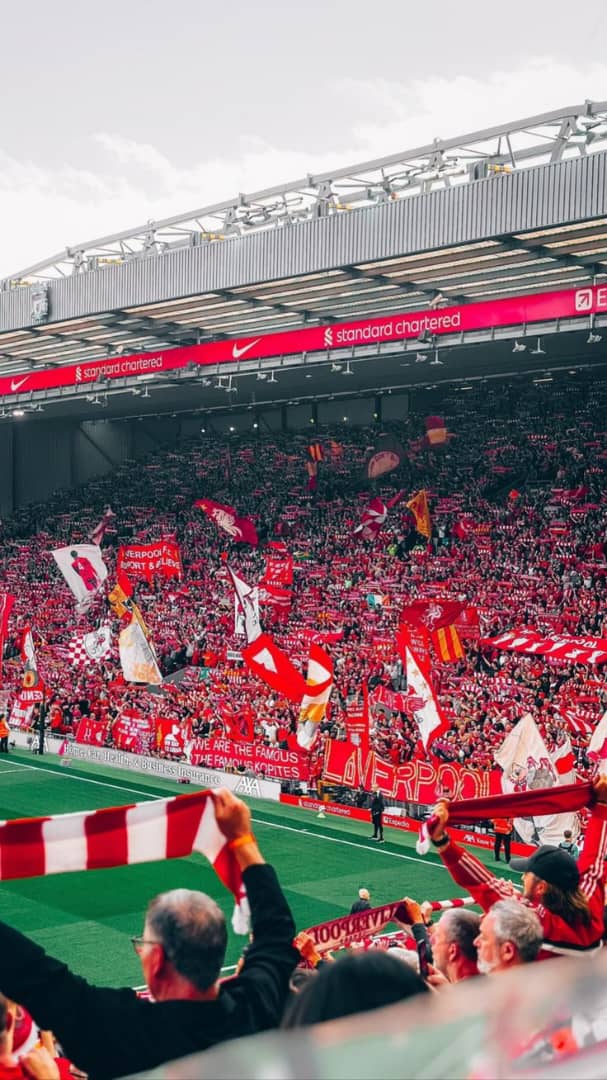
Table of Contents
- Introduction
- Understanding Youth Football Development
- The Psychological Needs of Young Footballers
- Parenting Styles in Football
- Roles and Responsibilities of Football Parents
- Emotional Support and Motivation
- Financial Commitment and Sacrifice
- Transport, Time, and Scheduling
- Parental Behavior on the Sidelines
- Communication with Coaches and Clubs
- Navigating Pressure, Burnout, and Overtraining
- Helping Children Handle Success and Failure
- Social Media and the Modern Football Parent
- Education and Football Balance
- The Role of Parents in Talent Identification
- Football Academies: A New Parenting Challenge
- Parents as Role Models in Sportsmanship
- The Dangers of Overinvolvement and Living Through the Child
- Creating a Healthy Football Environment at Home
- Parent–Coach Partnerships: Best Practices
- Supporting Children through Injuries and Setbacks
- Building Resilience and Long-Term Character
- Ethics and Integrity in Youth Football
- Parents’ Role in Combating Abuse and Discrimination
- Future Opportunities: Scholarships and Professional Pathways
- Global Perspectives: Cultural Differences in Football Parenting
- Stories and Testimonials from Real Families
- Expert Advice from Coaches and Psychologists
- The Evolving Role of Parents in Modern Football
- Conclusion: A Balanced Path Forward
1. Introduction
Youth football is more than just sport—it is a powerful vehicle for life skills, identity, and character development. At the heart of this journey stand the parents, whose influence can make or break a child’s experience in the game.
This blog post explores the multifaceted role parents play—from chauffeurs and cheerleaders to mentors, financiers, and sometimes, unintended pressure sources.
2. Understanding Youth Football Development
Football development at the youth level focuses on:
- Physical literacy
- Technical skill acquisition
- Tactical understanding
- Psychological growth
Different stages (ages 5–18) require age-appropriate guidance and parenting support. Understanding this progression helps parents align their expectations and behaviors with a child’s developmental needs.
3. The Psychological Needs of Young Footballers
Every young footballer needs:
- Autonomy: The freedom to enjoy the sport
- Competence: Confidence through success and learning
- Relatedness: Feeling supported and connected
When parents support these needs, kids stay motivated and enjoy the game longer.
4. Parenting Styles in Football
Types of Parenting in Youth Sports:
- Supportive Parent – Encourages effort and process over results
- Controlling Parent – Pushes outcomes and success, often aggressively
- Uninvolved Parent – Provides little support or interaction
- Overinvolved Parent – Lives vicariously through the child
Supportive parents tend to foster resilience, enjoyment, and long-term participation.
5. Roles and Responsibilities of Football Parents
Parents wear many hats:
- Logistics Manager: Driving to practice, scheduling
- Nutritionist: Ensuring proper diet and hydration
- Psychologist: Offering encouragement and managing stress
- Financial Sponsor: Paying for gear, travel, fees
- Moral Compass: Teaching ethics, respect, humility
Balancing these roles mindfully makes the youth football journey sustainable.
6. Emotional Support and Motivation
Positive emotional involvement includes:
- Listening after games without judgment
- Praising effort and attitude
- Comforting after losses
- Celebrating small victories
Avoid phrases like “Why didn’t you score?” or “You didn’t try hard enough.” Instead say, “I loved watching you play.”
7. Financial Commitment and Sacrifice
Youth football often involves:
- Registration fees
- Kits, boots, and training equipment
- Travel and accommodation for tournaments
- Private coaching or strength training
Families often adjust budgets, vacations, and careers to support their child’s passion.
8. Transport, Time, and Scheduling
Parents are responsible for:
- Coordinating pickups and drop-offs
- Managing time around school and homework
- Planning vacations around tournaments
- Attending matches and meetings
Time management becomes a family affair.
9. Parental Behavior on the Sidelines
Common behaviors that affect children:
- Positive cheering: Encourages performance
- Criticizing referees or coaches: Increases child anxiety
- Shouting instructions: Confuses or distracts players
- Arguing with other parents: Embarrasses children
The golden rule: Be present, not pressuring.
10. Communication with Coaches and Clubs
Healthy relationships with coaches include:
- Respecting boundaries
- Scheduling proper time for concerns
- Trusting the coach’s process
- Avoiding team gossip or manipulation
Open and respectful dialogue fosters a positive football culture.
11. Navigating Pressure, Burnout, and Overtraining
Warning signs of burnout:
- Loss of interest
- Mood swings or irritability
- Physical exhaustion
- Stress or anxiety before matches
Parents must monitor well-being, ensure rest, and promote balance. Not every child wants to be a pro—and that’s okay.
12. Helping Children Handle Success and Failure
Teach kids that:
- Losing is learning
- Mistakes are growth opportunities
- Winning with humility is key
A strong emotional foundation leads to confidence and maturity both on and off the pitch.
13. Social Media and the Modern Football Parent
With platforms like Instagram and YouTube, many parents now:
- Post highlight videos
- Showcase training routines
- Tag scouts and academies
While visibility can help, it can also add pressure and comparison. Balance is essential. Children need protection, not exposure overload.
14. Education and Football Balance
Academic support includes:
- Ensuring homework completion
- Speaking with teachers
- Choosing football academies with educational pathways
- Planning for alternatives to a professional career
Football can open doors, but education keeps them open.
15. The Role of Parents in Talent Identification
Parents are often the first to spot passion and talent. Their job is to:
- Encourage but not overhype
- Avoid comparison with other kids
- Seek second opinions from coaches or scouts
- Focus on development, not destination
16. Football Academies: A New Parenting Challenge
With early recruitment (sometimes under age 10), parents face:
- Contracts and travel
- Sacrifice of normal childhood routines
- Performance stress
Realistic conversations about what football offers and demands are crucial.
17. Parents as Role Models in Sportsmanship
Kids emulate parent behavior:
- Respect referees
- Applaud good play from both teams
- Avoid negative comments
- Embrace diversity and inclusion
Sportsmanship begins in the car ride home.
18. The Dangers of Overinvolvement and Living Through the Child
Overinvolved parents may:
- Make children feel obligated to succeed
- Project their own unfulfilled dreams
- Reduce child enjoyment
- Harm long-term interest
Let children own their journey. Support—don’t steer.
19. Creating a Healthy Football Environment at Home
This includes:
- Nutrition and sleep routines
- Watching football together
- Respecting training time
- Avoiding excessive pressure or analysis
- Providing unconditional love, win or lose
20. Parent–Coach Partnerships: Best Practices
Success lies in:
- Open communication
- Respecting coaching methods
- Offering feedback only when invited
- Not undermining authority
A united front between coach and parent builds trust and consistency for the child.
21. Supporting Children through Injuries and Setbacks
When injury strikes:
- Be patient and emotionally present
- Avoid rushing recovery
- Encourage physical therapy routines
- Promote a growth mindset
Setbacks are opportunities for character building.
22. Building Resilience and Long-Term Character
Football teaches:
- Discipline
- Teamwork
- Resilience
- Time management
- Goal setting
Parents must reinforce these values through consistency and life lessons.
23. Ethics and Integrity in Youth Football
Parents must teach:
- Respect for the game
- Fair play
- No shortcuts (e.g. lying about age, bribery)
- Acceptance of roles and decisions
The game must be more than performance—it must be principled.
24. Parents’ Role in Combating Abuse and Discrimination
Football isn’t immune to racism, sexism, and abuse. Parents must:
- Listen when children raise concerns
- Report wrongdoing
- Support anti-discrimination policies
- Promote inclusivity
Silence enables harm. Speak and act with integrity.
25. Future Opportunities: Scholarships and Professional Pathways
Parents help guide paths like:
- University scholarships
- International academies
- Club development contracts
Professional football is not guaranteed. But football as a pathway to education, travel, and growth is invaluable.
26. Global Perspectives: Cultural Differences in Football Parenting
- Brazil: Street football + emotional involvement
- England: Academy systems and competition
- USA: Focus on scholarships and multi-sport parenting
- Africa: High expectations as a way out of poverty
- Europe (Scandinavia): Emphasis on enjoyment and social skills
There’s no single model, but all cultures share one truth: parents matter deeply.
27. Stories and Testimonials from Real Families
“The hardest part was letting go and trusting the coach, but it made my son stronger.” – Angela, UK
“I missed work for every game. I don’t regret a second.” – Joseph, Nigeria
“When my daughter tore her ACL, we almost gave up. But football gave her a reason to fight back.” – Maria, Spain
28. Expert Advice from Coaches and Psychologists
Advice for parents:
- Praise effort, not talent
- Keep goals realistic
- Model positive emotional control
- Encourage multi-sport participation
- Let kids lead
Dr. John Smith (Sports Psychologist):
“Parental belief is a superpower when used with empathy.”
29. The Evolving Role of Parents in Modern Football
From being sideline fans to becoming active stakeholders, today’s football parents:
- Use apps to track performance
- Share digital highlights
- Enroll children in private training
- Navigate contracts, agents, and media
Adaptability is key, but the core role remains the same: be a supportive, loving presence.
30. Conclusion: A Balanced Path Forward
The parent’s role in youth football is not about winning, controlling, or dreaming for the child. It’s about:
- Nurturing joy
- Promoting balance
- Fostering character
- Supporting dreams without stealing them
Great parents create not only better footballers but better people.
Your child doesn’t need a manager. They need a fan who loves them unconditionally.





